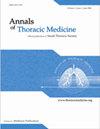COVID-19 reinfection: A multicenter retrospective study in Saudi Arabia
IF 2.3
4区 医学
Q3 CARDIAC & CARDIOVASCULAR SYSTEMS
引用次数: 7
Abstract
INTRODUCTION: There are limited direct data on severe acute respiratory syndrome coronavirus 2 (SARS-CoV-2) long-term immune responses and reinfection. This study aimed to evaluate the rate, risk factors, and severity of COVID-19 reinfection. METHODS: This retrospective cohort study included five hospitals across Saudi Arabia. All subjects who were presented or admitted with positive SARS-CoV-2 real-time polymerase chain reaction (RT-PCR) tests were evaluated between March 2020 and August 2021. Reinfection was defined as a patient who was infected followed by clinical recovery, and later became infected again 90 days post first infection. The infection was confirmed with a positive SARS-CoV-2 (RT-PCR). Four hundred and seventeen recovered cases but with no reinfection were included as a control. RESULTS: A total of 35,288 RT-PCR-confirmed COVID-19 patients were observed between March 2020 and August 2021. Based on the case definition, (0.37%) 132 patients had COVID-19 reinfection. The mean age in the reinfected cases was 40.95 ± 19.48 (range 1–87 years); Females were 50.76%. Body mass index was 27.65 ± 6.65 kg/m2; diabetes and hypertension were the most common comorbidities. The first infection showed mild symptoms in 91 (68.94%) patients; and when compared to the control group, comorbidities, severity of infection, and laboratory investigations were not statistically different. Hospitalization at the first infection was higher, but not statistically different when compared to the control group (P = 0.093). CONCLUSION: COVID-19 reinfection is rare and does not carry a higher risk of severe disease. Further studies are required, especially with the continuously newly emerging variants, with the unpredictable risk of reinfection.COVID-19再感染:沙特阿拉伯的一项多中心回顾性研究
关于严重急性呼吸综合征冠状病毒2 (SARS-CoV-2)的长期免疫反应和再感染的直接数据有限。本研究旨在评估COVID-19再感染的发生率、危险因素和严重程度。方法:这项回顾性队列研究包括沙特阿拉伯的五家医院。在2020年3月至2021年8月期间,对所有SARS-CoV-2实时聚合酶链反应(RT-PCR)检测呈阳性或入院的受试者进行评估。再感染定义为患者感染后临床康复,在第一次感染后90天再次感染。感染确诊为SARS-CoV-2阳性(RT-PCR)。417例痊愈但无再感染的病例作为对照。结果:2020年3月至2021年8月,共观察到35288例rt - pcr确诊的COVID-19患者。根据病例定义,再感染132例(0.37%)。再感染病例的平均年龄为40.95±19.48岁(1 ~ 87岁);女性占50.76%。体质指数27.65±6.65 kg/m2;糖尿病和高血压是最常见的合并症。首次感染症状轻91例(68.94%);与对照组相比,合并症、感染严重程度和实验室调查没有统计学差异。首次感染住院率较高,但与对照组比较差异无统计学意义(P = 0.093)。结论:2019冠状病毒病再感染罕见,不存在严重疾病的高风险。需要进一步的研究,特别是不断出现的变异,再感染的风险不可预测。
本文章由计算机程序翻译,如有差异,请以英文原文为准。
求助全文
约1分钟内获得全文
求助全文
来源期刊

Annals of Thoracic Medicine
CARDIAC & CARDIOVASCULAR SYSTEMS-RESPIRATORY SYSTEM
CiteScore
4.10
自引率
4.30%
发文量
19
审稿时长
>12 weeks
期刊介绍:
The journal will cover studies related to multidisciplinary specialties of chest medicine, such as adult and pediatrics pulmonology, thoracic surgery, critical care medicine, respiratory care, transplantation, sleep medicine, related basic medical sciences, and more. The journal also features basic science, special reports, case reports, board review , and more. Editorials and communications to the editor that explore controversial issues and encourage further discussion by physicians dealing with chest medicine.
 求助内容:
求助内容: 应助结果提醒方式:
应助结果提醒方式:


